Mary De La Pena
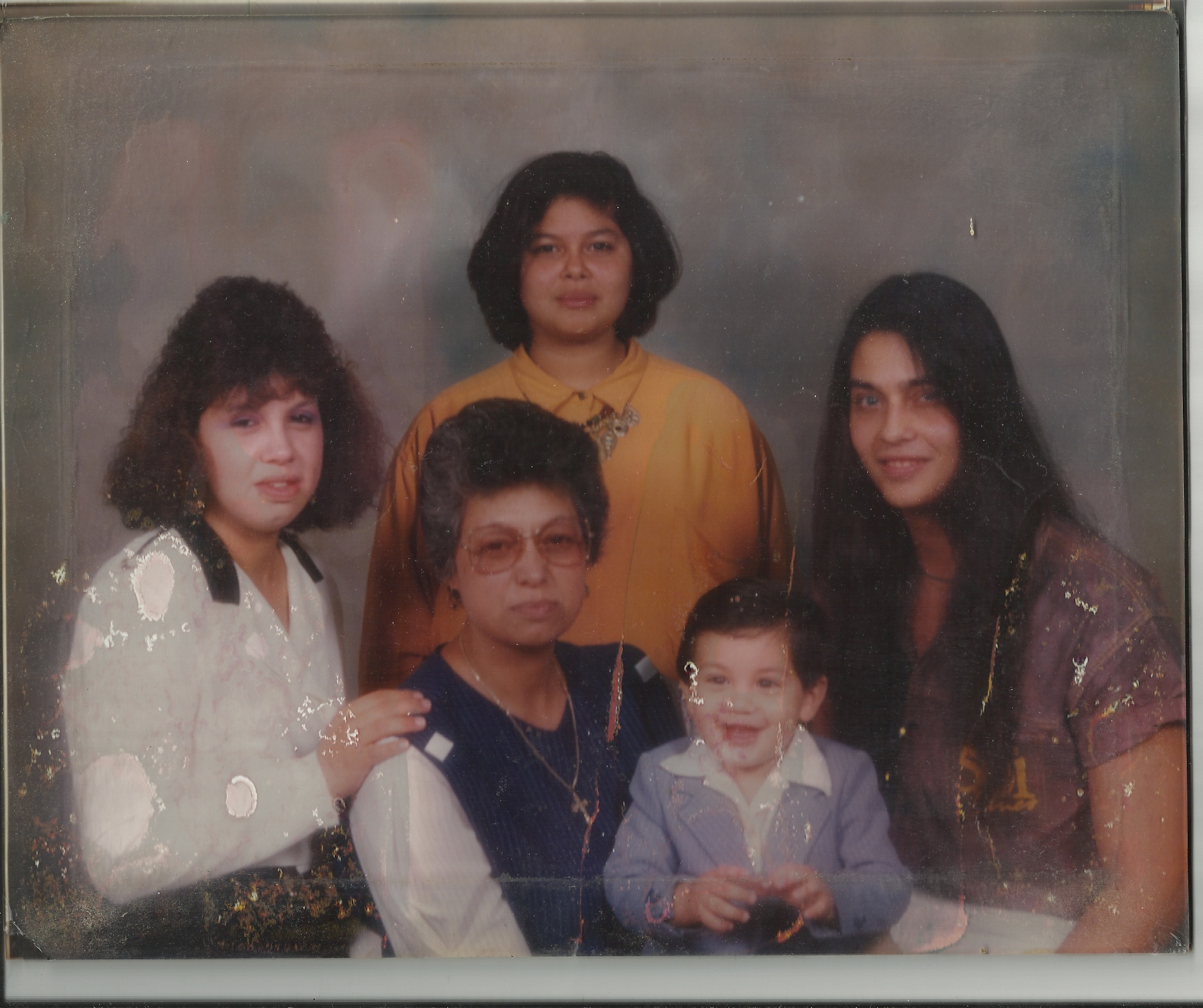
What schools did you go to when you were growing up.
I went to P.F. Stewart from first grade, we use to be call the pepeeners , yuup first grade (laughing). From that on all the way to the 5th grade, six grade I went to Highlands High School all the way to 8, that was my last, I did not continue. I told my mom I didn't want to go back to school, she gave me a choice go to school or go to work, so I decided to go to work. I worked at FineSilver with my mom, I started at age 13, was not able to work until 14, but my sister Angie fixed my birth certificate to make me a year older. I quit school cause I was absent a lot of taking care of my older sister's children, I missed so much I was very far behind, I didn't want to go anymore.
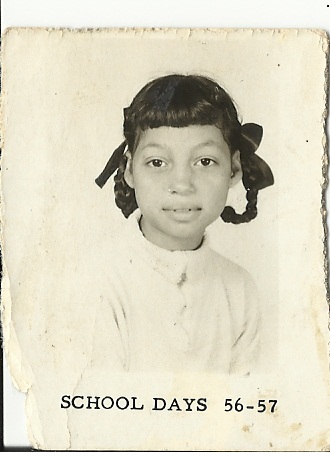
How did your brother Juan Junior pass away?
It was diarrhea and at that time they did not know how to cure it. It was him and my cousin Gloria who were sick at the same time , but my Grandmother lived with Gloria's mom (my aunt)she would give her all the remedies she knew but she never went to my mom's so they didn't do anything, they couldn't help him, not even in the hospital they didn't know how to stop the diarrhea. My mom told me that Gloria lived because of my grandmother. She lived but my brother died. I never knew why my grandmother didn't help her or him.He was born before I was and passed a couple of months after he born around 8 months of age. I never got to meet him but I would have loved too.
What do you mean that your grandmother would not help him?
My grandmother was Indain, and she use to use herbs and remedies to cure people. She was still upset with my mom that she got married and they didn't have a good relationship anymore, they would hardly speek, but I don't know if that is the reason she didn't help./B>
Do you know from what tribe your grandmother was from
My Grandmother was Indian. My great grandfather was Indian and that's the blood that we have and they were Tawakoni Indians. My grandfather was one of those of those close to the chief that would sit in a round circle and give their opinion or advice to him. uh I guess chiefs council. They would sit around in a circle and pass the pipe. My grandmother kept his pipe and dress head I mean head dress but I don't know what ever happened to that. His name was Siemperdas Lumbreas , my grandmothers name was Maria Raquel Remejia Lumbreas Gallindo. Well she never actually got married (laughing) she named herself my mother's maiden name Gallindo. I never really asked about being Indain I wish now I had.
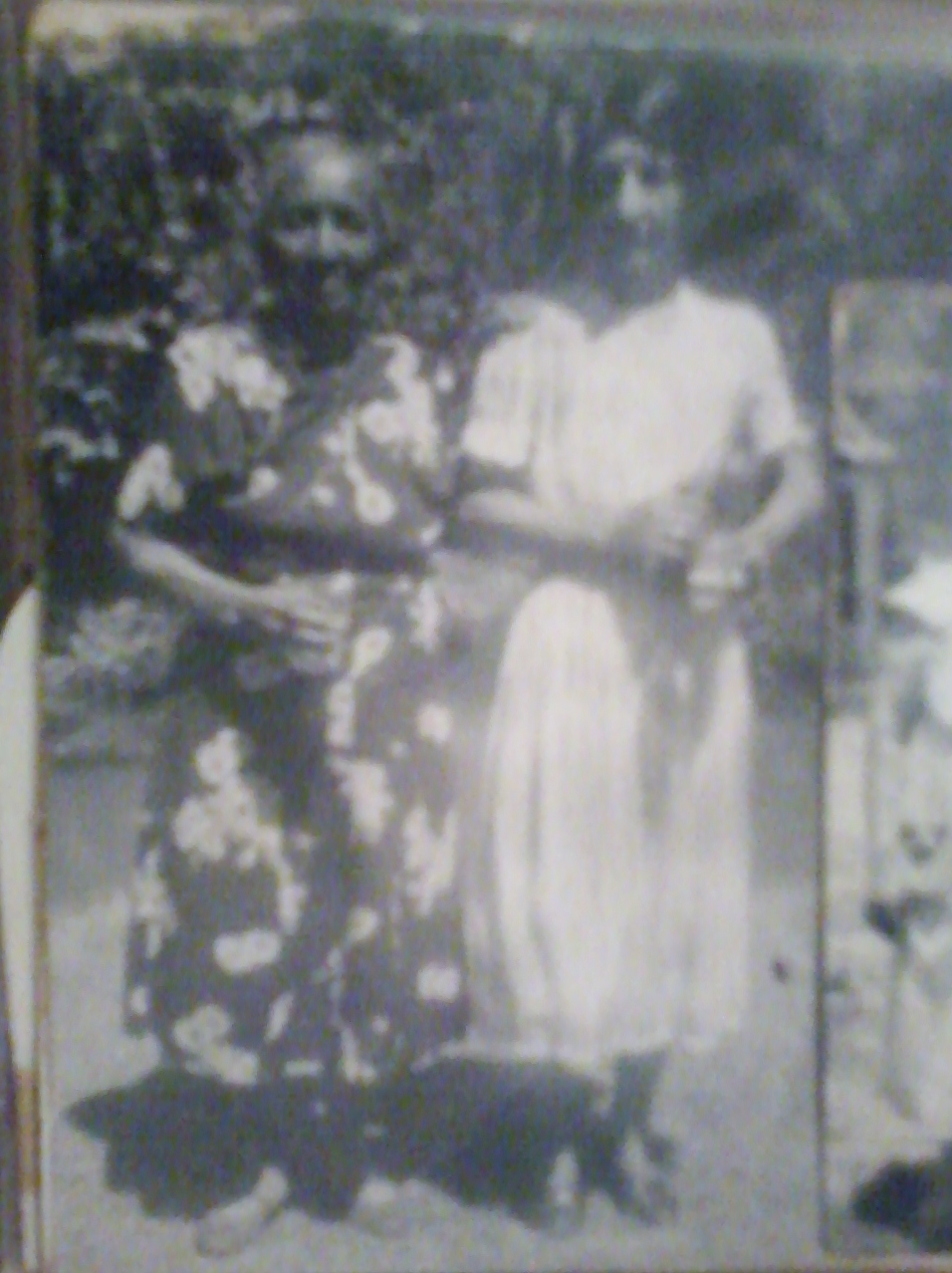
Growing up did you consider yourself "poor"?
No, my mother always made sure we had food, at the time when I was going up everything was so cheap. I remember when they use to send me to the school to buy a loaf of bread and some bologna, the loaf of bread was .25 cents and the pound of bologna was .25 cents, so we ate a lot of sandwiches (lol) I still eat a lot of sandwiches, the sodas were 10 cents, the hippos sizes (large two liter glass bottles), then you take the bottle back and they would give you a nickels back. Tootsie rolls were a penny, and bubble gum, everything was penny wise. My mom raising us, only thing she wouldn't buy us toys. We never expected any toys for Christmas; she made sure we had enough that was my mom she made sure we had what we needed.
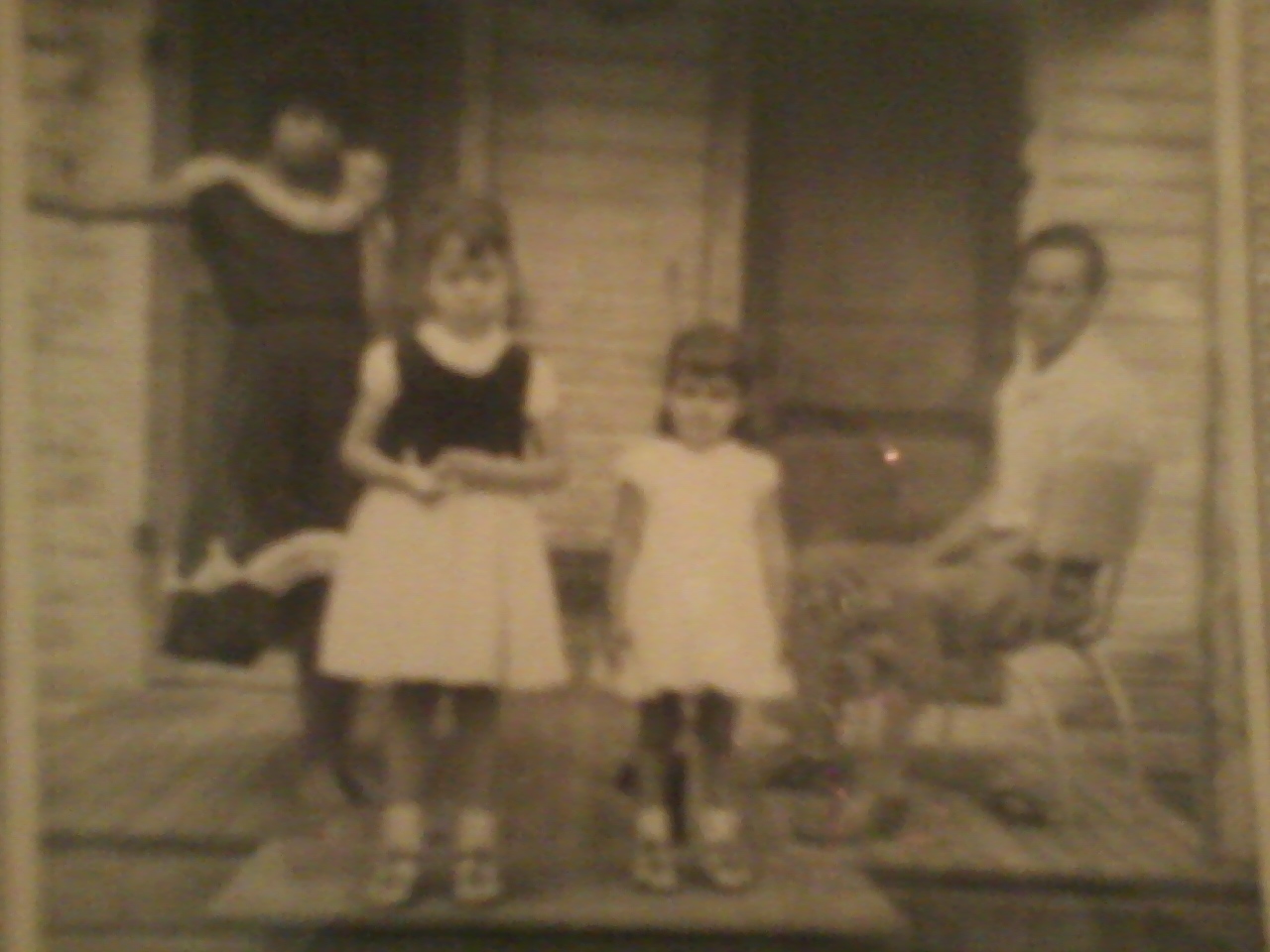 <
<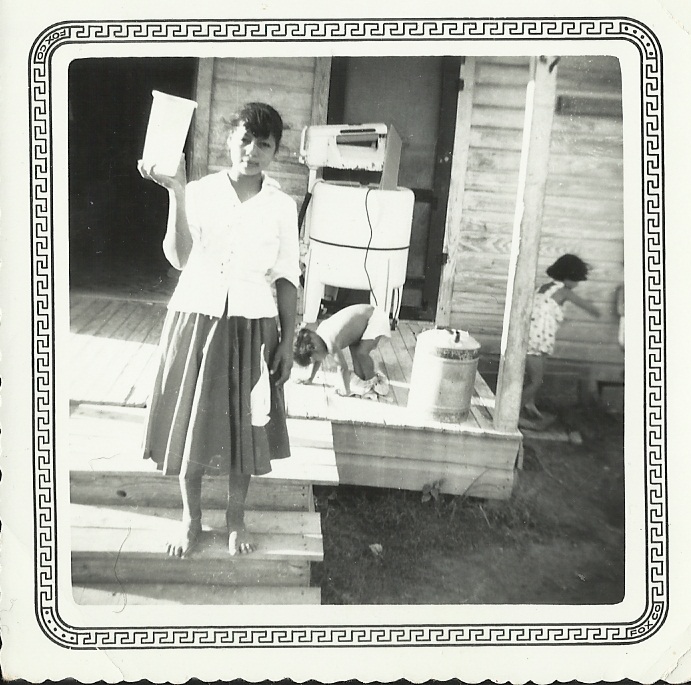
Is there anything more you'd like to add?
I regret not asking my mother and grandmother and the rest of my relatives about their lives as children and growing up. I never knew how important for my children to know where and who they come from. I am sad that I only have a few details to share about my grandmother, and my mother but she never wanted to share with any of her kids, she always worked a lot, so I missed out on really getting to know my mom. To be honest it was not mentioned in my family, being Indian was never important, we were who we were. it wasn't until I was in my last 40's did I want to know about my grandmother, by then it was too late, no one had her birth certificate,she had no relatives. I had nothing to go on. Forntunely Sulema (oldest child) wrote many of the stories that my grandmother would tell my sisters. She will have better stories.
Oh and I remember when she ( my grandmother) sat me and my sisters down and tell us how my grandfather hid her. Cause at that time they would raid them, and since she was a daughter of a chief, those are the ones they would take, so at that time they dug a hole and he put her in there and he told her not to get out for three days, so they covered that with leaves and everything, so when they came to raid the village they didn't know she was there, three days later she came out and everyone was gone.
She had a lot of people who went to her house for medical reasons, she know all kind of herb s to use, and her back yard was full of herbs. Anything that was wrong with you she knew, no doctor. Some of her healings I did get to watch, it was very amazing to see. I don't think that I could ever do what she did; she would say some kind of prayer. She healed people through her remedies. If you cut yourself, she would get the spider webs and put them there and it would stop bleeding, I don't care how thick or deep the cut was, it would stop bleeding.
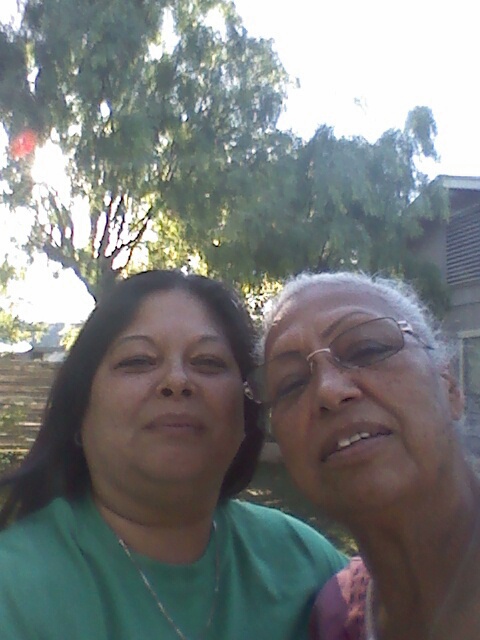
Upon conducting this project in which I asked my mother to recall several different aspects of her life, unfortunally she did't go much into detail since she didn't think her life was exciting, I was able to better understand my mother's work ethics, her strong desire for her children to succed in life and her heartbreak of never really having the relationship with her mother that little girls dream of. The fact that Mary's mother worked so much left her pretty much without a mother figure. Mary has always worked very hard, even though she was married she considered herself to be very independant, her mother told her "never relie on a man". She installed the same values in her children, especially her daughters. Mary's hard life in the employemnet industry was due to her lack of education. She worked hard jobs as a steamstress most of her life, determined to change certain aspects of her life, she returned to school obtained her G.E.D. and self educated herself to drive buses which has lead her to a job that she loves, as a C.D.L. driver for service mean and women of the United States Air Force. Mary did not want her children to suffer and subcome to the same disadvantages as she did as growing up. Mary enforced a strong education for her children. She made sure her children knew that education was important for a good life. As a child Mary was forced into the roll of motherhood to her nieces , a roll she never minded. However she left that roll along with that of a high school student to start working at the age of 13 to ease the hard ships of her mother. She loved her mother so much and yerned for that relationship, which was only fullfilled in the last months of her mother's life. Mary has had a hard life, she's endured many struggles and has over come numerous hurrdles, the only tragedy that Mary has had to endure is the death of her only son 2 years ago,however her strong Christain faith eases her heartache as she knows she will be reunited with him and her mother Matilde.
As I ended my interview with my mother, I realized how important it is that we share our history so that others may learn. I did not know the importance about learning about my Native American ancestors. As my mother reminesed about her childhood she had a profound sadness as she expressed, "I wish that I was smart enough to have asked my mother and grandmother questions about their lives, I missed so much. I will never know the hard things they went through or my true roots to who I am".
I think we all want and need that sense of belonging. It's through stories (and oral history reports) told by family members, friends and aquiantences that their lives will live on through generations. The stories of past struggles, family and first hand accounts of current events of the time the are being past between people are rare occassions that will never be found in any History book.
There is so much vast history within San Antonio, many may never know the importance of peoples life stories. Hisotry will be lost with every untold story of; life, hardship and survival.
I was able to confirm the stories that my mother told me about her mother Matilde, her grandmother Maria and her great-grandfather Siempredas Lumbreas with my cousin Rose Rivera. Rose was one of Mary's neices whom she raised, and she along with my mother sat and listen to stories being told.
The Handbook of Texas Online is a multidisciplinary encyclopedia of Texas history, geography, and culture sponsored by the Texas State Historical Association and the General Libraries at UT-Austin. It was produced in partnership with the College of Liberal Arts and the General Libraries at the University of Texas at Austin. Copyright © The Texas State Historical Association.
San Antonio Independant School District website is the the district's school website. Mary attended Highlands Higah School from the 6th-8th grade.
St. Philips College. This website give information on courses taken at the college site. Mary went to St. Pilips College and obtained her G.E.D. Alamo Colleges. San Antonio, TX 1801 Martin Luther King Dr, San Antonio, TX 78203
Access Geneology website is a website that gives information about the Tawakoni Indians. Mary stated that her greatgrand father Siempres Lumbreaw and her grandmother Angela Maria Remigia Lumbera were member of the Tawakoni tribe in which her father was council to the chief.
Yahoo image search is website that searches for diffrent images. Mary started working at FineSilver at age 13 in 1960.
Photographs and/or documents on this website were provided by Mary Alice De La Pena and Rose Marie Rivera. Some of these pictures were taken inside and outside the family home 1533 Bailey Ave, San Antonio Tx 78210. The information on whom took the pictures has been forgotten over time. Most of these pictures were of everyday life. I had a few of the pictures in which I recovered them from the trash many years ago, my mother didn't think they were of any more importantace, and some pictures were sent to me via mobile device from Rose Riverea, my mother's niece whom she raised.